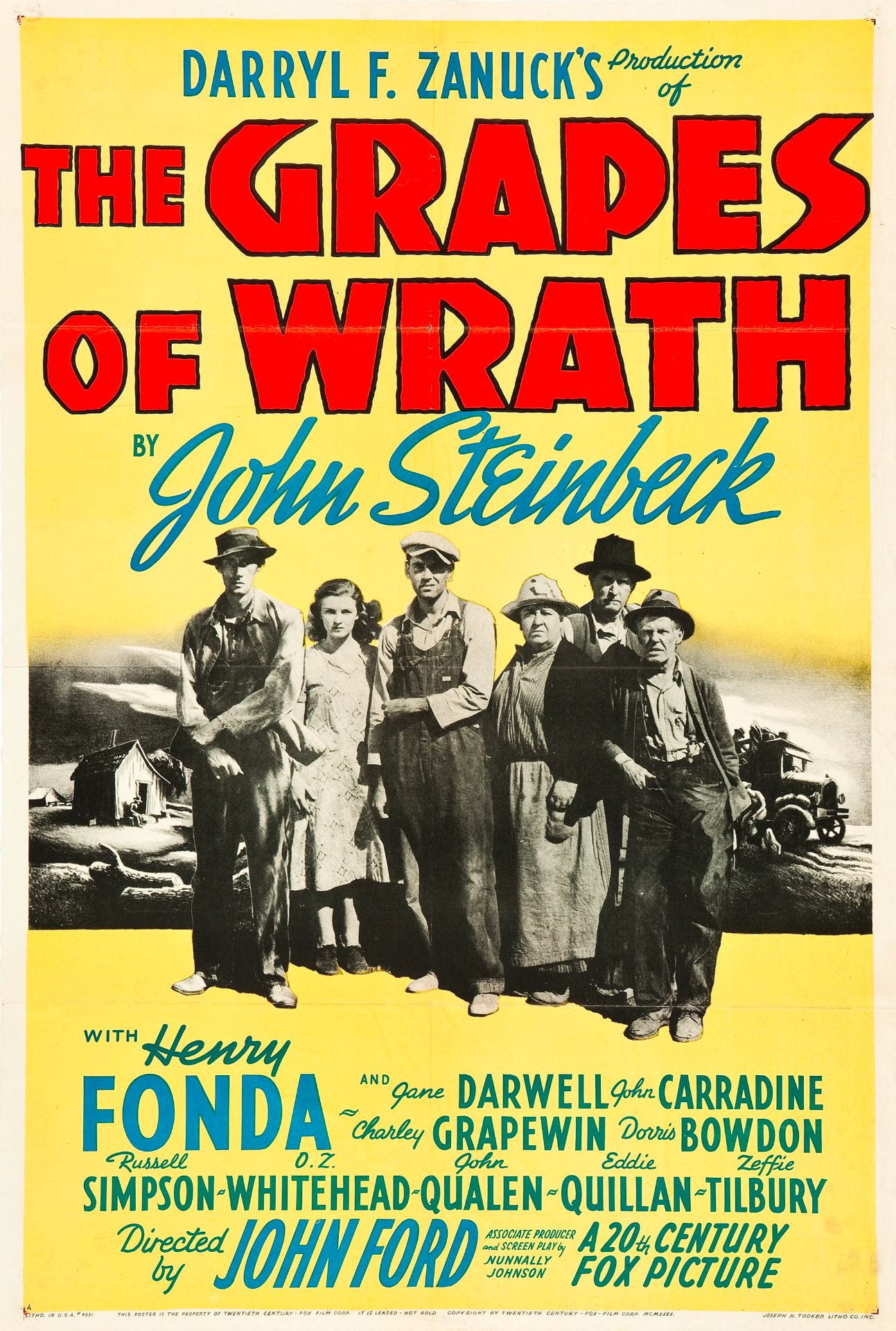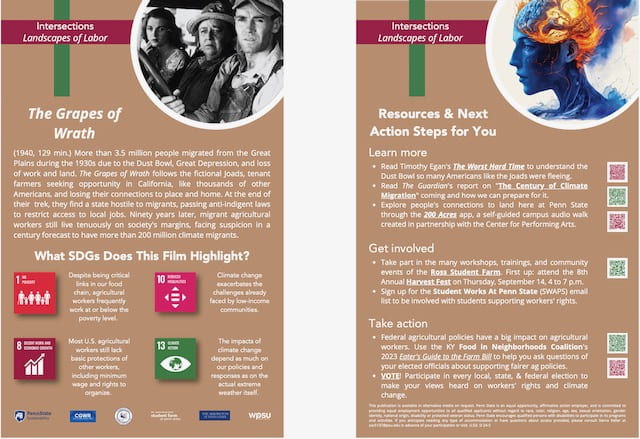The Grapes of Wrath
Wednesday, September 6, 2023 @ 7:30 PM (EDT)
Screened Outdoors(!) at the Penn State Arboretum

Check out our Digital Handbill!
John Ford (1940, U.S., 129 min.)
Thanks to everyone who joined us for our first ever outdoor screening under the stars, as we kicked off our 2023-24 Intersections film program. And what better way to start the year than with one of THE classic American films of all time, based upon one of the classic American novels.
The Grapes of Wrath, based upon John Steinbeck’s bestselling work, is a story of climate refugees–“Okies” forced out of the American southwest by the Dust Bowl. When massive dust clouds blew away billions of tons of once-fertile topsoil after the plowing of native prairie grass vegetation and over-farming of the land in a naturally arid region, the resulting ecological and economic devastation forced hundreds of thousands of small farmers to depart. With nothing to keep them at home, families like the Joads headed West, drawn by a supposed promise of work in California. But when they arrived, they found poor working and living conditions and a state suspicious of migrants come to take their jobs.
Sadly, the Dust Bowl was a mere preview of massive climate disruptions developing in the 21st century that will displace as many as 100 million refugees worldwide by 2050, according to United Nations estimates (with some estimates as high as one billion people displaced by the end of the century). So the film’s climate themes are highly relevant today, as is its exploration of the continuing poor treatment of agricultural laborers. But promisingly, the film’s glimmers of hope for the Joad family, when they come across cooperative settlements that empower workers, still offers us promising models to consider today when trying to take action to address our twin issues of climate and workers’ rights.
(Screened in partnership with the Center for Global Workers’ Rights, the Ross Student Farm, and the Arboretum at Penn State )
The message is boldly displayed, but told with characters of such sympathy and images of such beauty that audiences leave the theater feeling more pity than anger or resolve. It’s a message movie, but not a recruiting poster.
